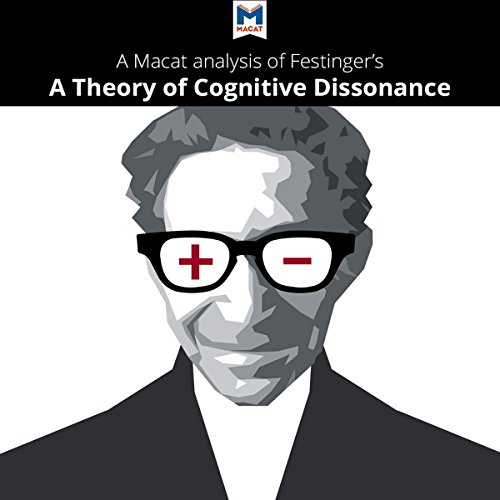
A Macat Analysis of Leon Festinger's A Theory of Cognitive Dissonance
Failed to add items
Add to basket failed.
Add to wishlist failed.
Remove from wishlist failed.
Adding to library failed
Follow podcast failed
Unfollow podcast failed
Buy Now for £6.99
No valid payment method on file.
We are sorry. We are not allowed to sell this product with the selected payment method
-
Narrated by:
-
Macat.com
About this listen
Why do we want to justify our decisions, even if they appear to be irrational? The answer lies in cognitive dissonance, the mental discomfort we experience when we hold two contradictory beliefs at the same time. In A Theory of Cognitive Dissonance, first published in 1957, American social psychologist Leon Festinger investigates the problem. In what another social psychologist, Bertram Gawronski, has called "arguably one of the most influential theories in the history of social psychology", Festinger puts forward the idea that we have developed mechanisms to try to deal with the stress brought on by cognitive dissonance. So we change an existing attitude, alter its relative importance, or add new ones to create logic in our choices. This can explain the way we rationalize a decision after it's been made or why we justify our actions after the event, even if we were forced into them.
Research on dissonance has been very important in encouraging sociable behavior, promoting healthy habits, and reducing prejudice.
©2016 Macat Inc (P)2016 Macat Inc

















